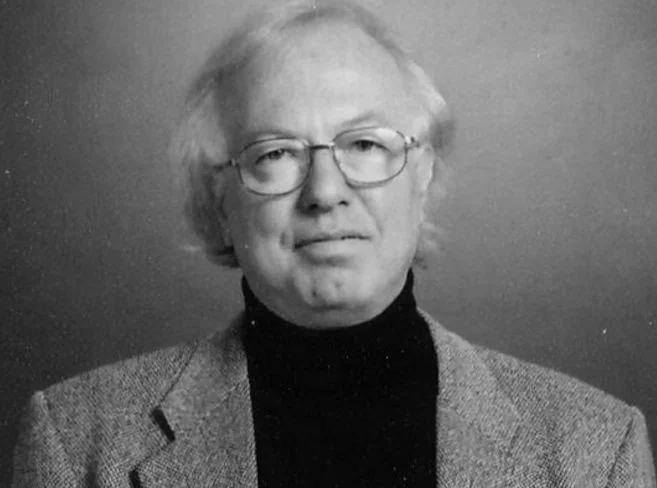The István Hont Book Prize is awarded each year to the best book published in intellectual history.
The István Hont Book Prize
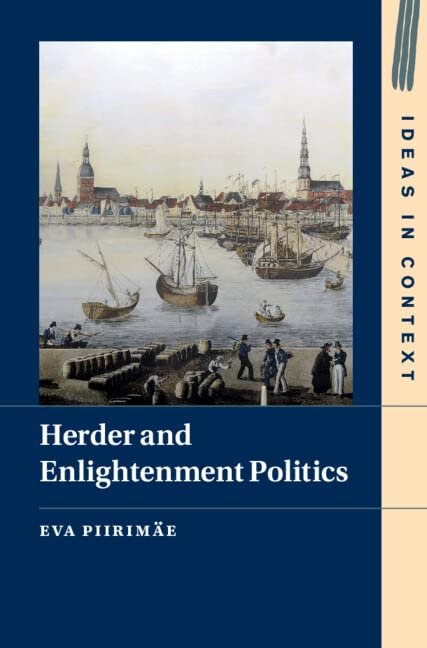
Winner 2023
Herder and Enlightenment Politics
(Cambridge University Press)
By Eva Piirimäe
Johann Gottfried Herder initiated the modern disciplines of philosophical anthropology and cultural history, including the study of popular culture. He is also remembered as a sharp critic of colonialism and imperialism. But what types of social, economic and political arrangements did Herder envision for modern European societies? Herder and Enlightenment Politics provides a radically new interpretation of Herder's political thought, situating his ideas in Enlightenment debates on modern patriotism, commerce and peace. By reconstructing Herder's engagement with Rousseau, Montesquieu, Abbt, Ferguson, Möser, Kant and many other contemporary authors, Eva Piirimäe shows that Herder was deeply interested in the potential for cultural, moral and political reform in Russia, Germany and Europe. Herder probed the foundations of modern liberty, community and peace, developing a distinctive understanding of human self-determination, natural sociability and modern patriotism as well as advocating a vision of Europe as a commercially and culturally interconnected community of peoples.
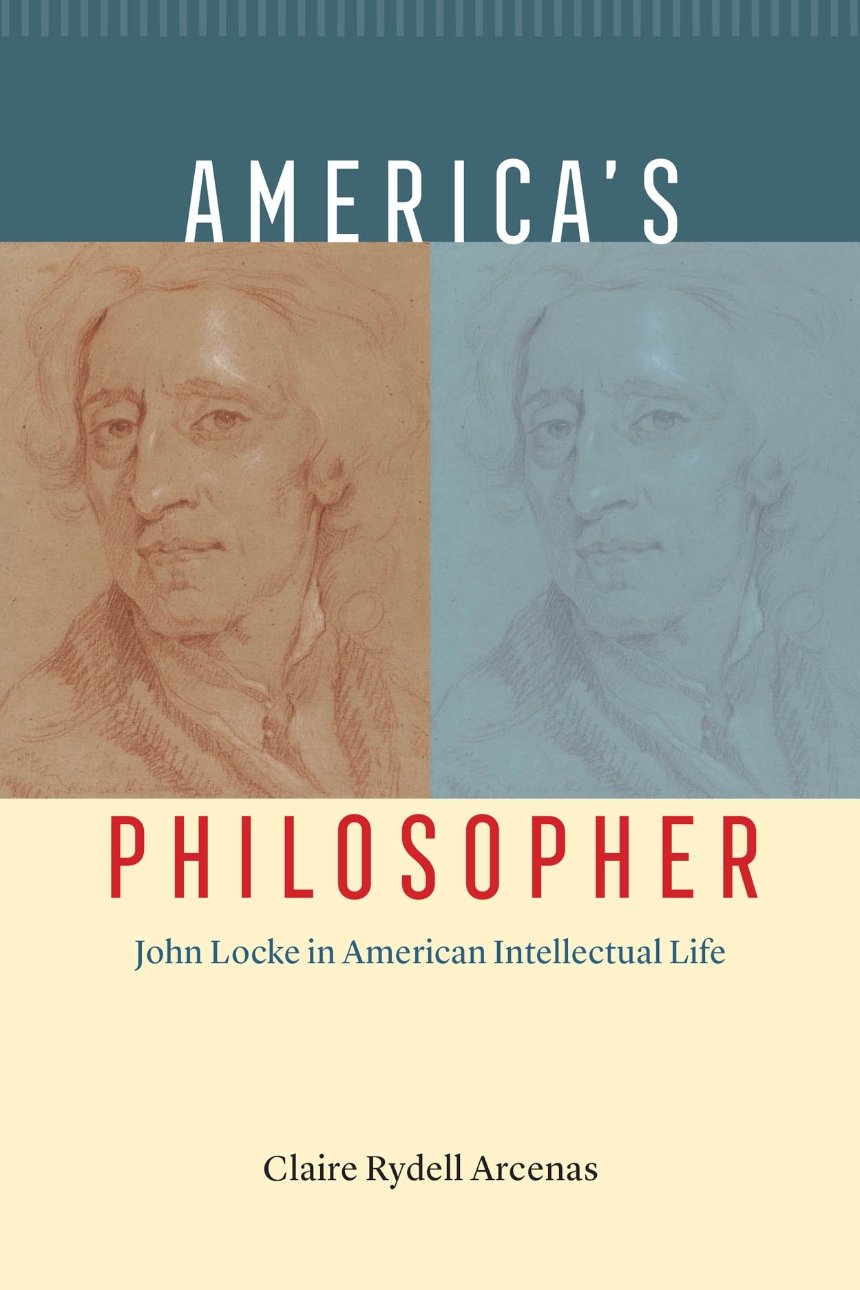
Winner 2022
America’s Philosopher - John Locke in American Intellectual Life (University of Chicago Press)
By Claire Rydell Arcenas
A commonly held position in post-WWII American intellectual life was that John Locke's Second Treatise of Government underpinned not only the Declaration of Independence, but also the American Political Tradition more generally. But as Claire Rydell Arcenas's book shows, the centrality of Locke is largely a 20th century creation. In her often surprising account of America’s engagement with Locke from the early eighteenth century to the late twentieth, Arcenas suggests that successive generations of American readers found different aspects of Locke thought to be significant, although much less his political philosophy than his epistemology and his thoughts on self-development. The book is a masterfully written and well-researched work of intellectual history.
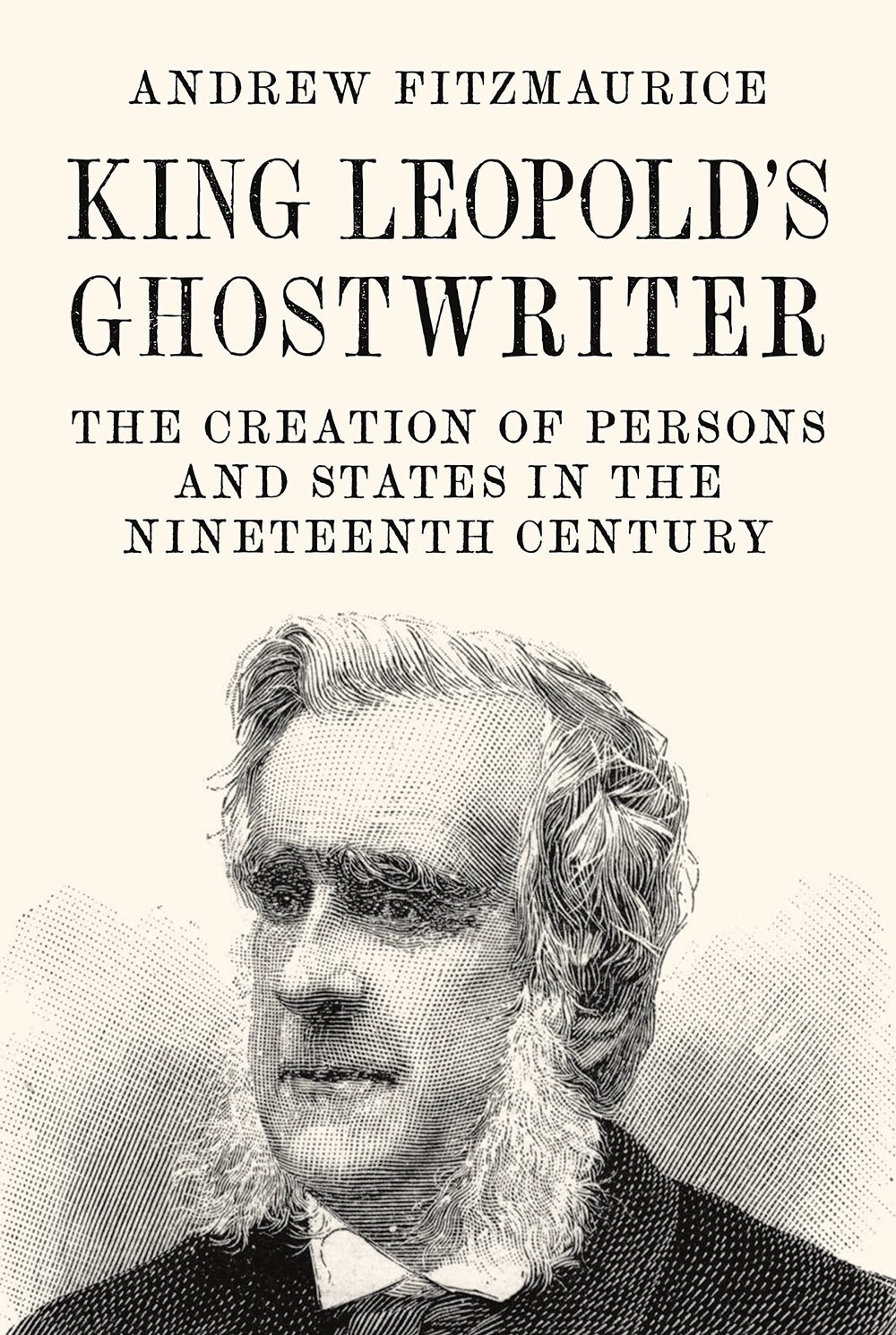
Winner 2021
King Leopold’s Ghostwriter: The Creation of Persons and States in the Nineteenth Century
By Andrew Fitzmaurice
By combining political history and intellectual biography, Andrew Fitzmaurice’s King Leopold’s Ghostwriter is intellectual history at the highest level, uncovering the life of an almost forgotten Victorian legal theorist and the influence he has had on the development of international law.
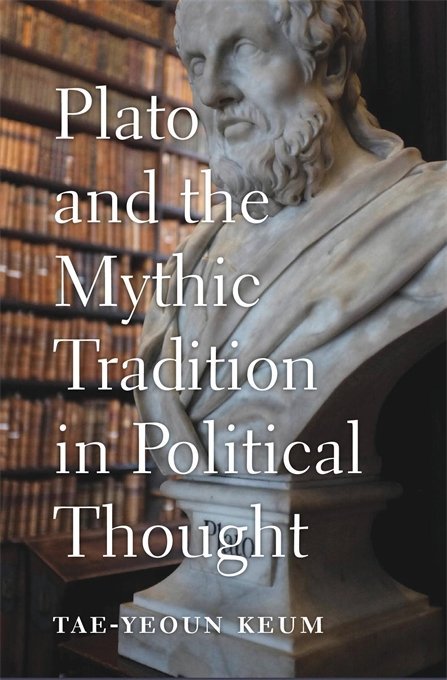
Joint Winner 2020
Plato and the Mythic Tradition in Political Thought (HUP)
By Tae-Yeoun Keum
An ambitious reinterpretation and defense of Plato’s basic enterprise and influence, arguing that the power of his myths was central to the founding of philosophical rationalism.
Plato’s use of myths sits uneasily with his canonical reputation as the inventor of rational philosophy. Since the Enlightenment, interpreters like Hegel have sought to resolve this tension by treating Plato’s myths as mere regrettable embellishments, irrelevant to his main enterprise. Others, such as Karl Popper, have railed against the deceptive power of myth, concluding that a tradition built on Platonic foundations can be neither rational nor desirable. In this book, Tae-Yeoun Keum challenges the premise underlying both of these positions. She argues that myth is neither irrelevant nor inimical to the ideal of rational progress. She tracks the influence of Plato’s dialogues through the early modern period and on to the twentieth century, showing how pivotal figures in the history of political thought—More, Bacon, Leibniz, the German Idealists, Cassirer, and others—have been inspired by Plato’s myth-making. She finds that Plato’s followers perennially raised the possibility that there is a vital role for myth in rational political thinking.
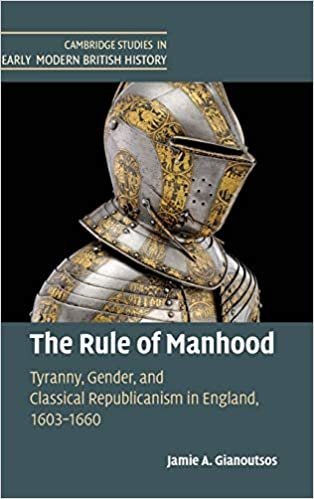
Joint Winner 2020
The Rule of Manhood - Tyranny, Gender, and Classical Republicanism in England, 1603–1660 (CUP)
By Jamie A. Gianoutsos
Through stories of lustful and incestuous rulers, of republican revolution and of unnatural crimes against family, seventeenth-century Englishmen imagined the problem of tyranny through the prism of classical history. This fuelled debates over the practices of their own kings, the necessity of revolution, and the character of English republican thought. The Rule of Manhood explores the dynamic and complex languages of tyranny and masculinity that arose through these classical stories and their imaginative appropriation. Discerning the neglected connection between concepts of power and masculinity in early Stuart England, Jamie A. Gianoutsos shows both how stories of ancient tyranny were deployed in the dialogue around monarchy and rule between 1603 and 1660 and the extent to which these shaped English classical republican thought. Drawing on extensive research in contemporary printed texts, Gianoutsos persuasively weaves together the histories of politics and manhood to make a bold claim: that the fundamental purpose of English republicanism was not liberty or virtue, but the realisation of manhood for its citizens.
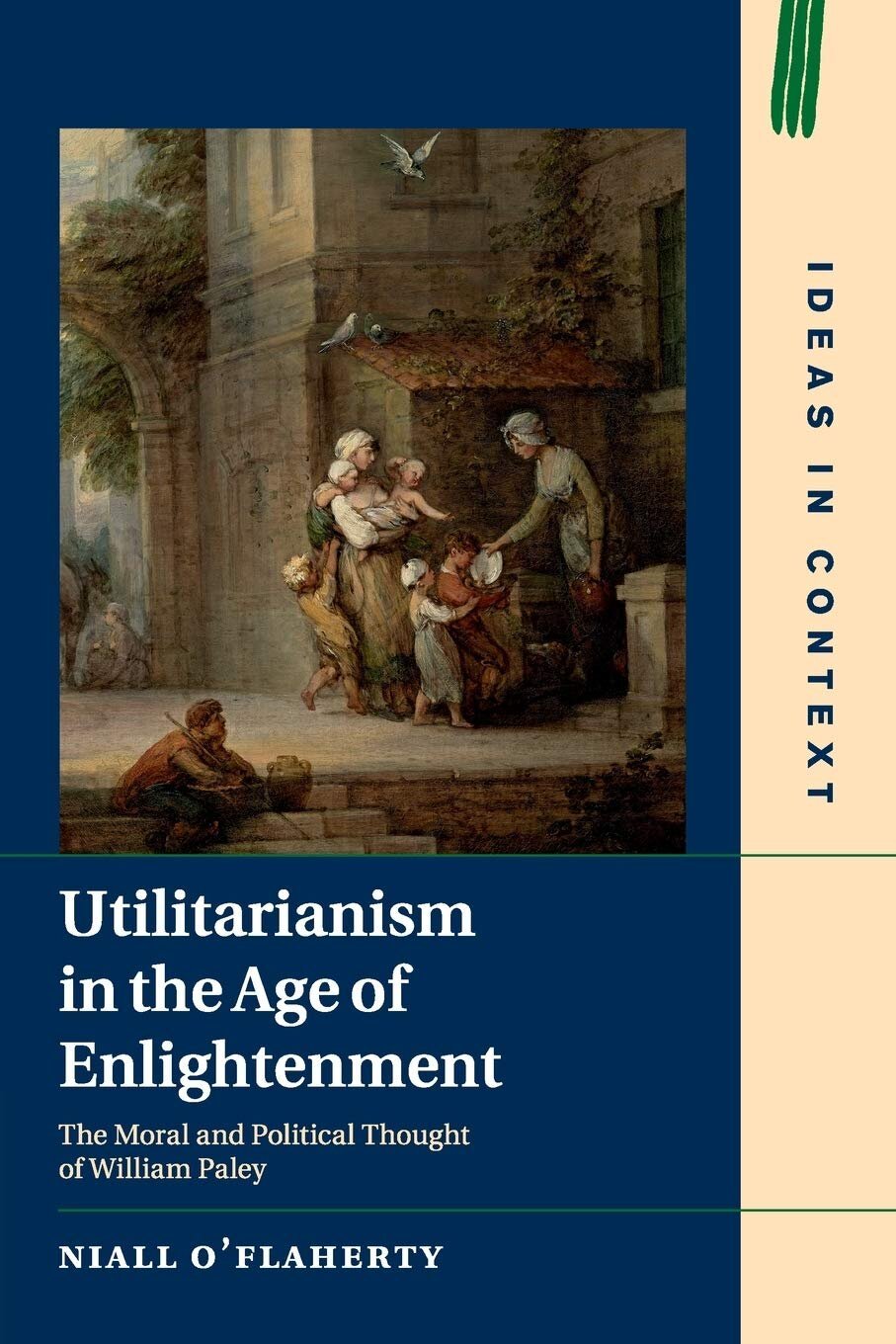
Winner 2019
Utilitarianism in the Age of Enlightenment - The Moral and Political Thought of William Paley (CUP)
By Niall O'Flaherty
This is the first book-length study of one of the most influential traditions in eighteenth-century Anglophone moral and political thought, 'theological utilitarianism'. Niall O'Flaherty charts its development from its formulation by Anglican disciples of Locke in the 1730s to its culmination in William Paley's work. Few works of moral and political thought had such a profound impact on political discourse as Paley's Principles of Moral and Political Philosophy (1785). His arguments were at the forefront of debates about the constitution, the judicial system, slavery and poverty. By placing Paley's moral thought in the context of theological debate, this book establishes his genuine commitment to a worldly theology and to a programme of human advancement. It thus raises serious doubts about histories which treat the Enlightenment as an entirely secular enterprise, as well as those which see English thought as being markedly out of step with wider European intellectual developments.
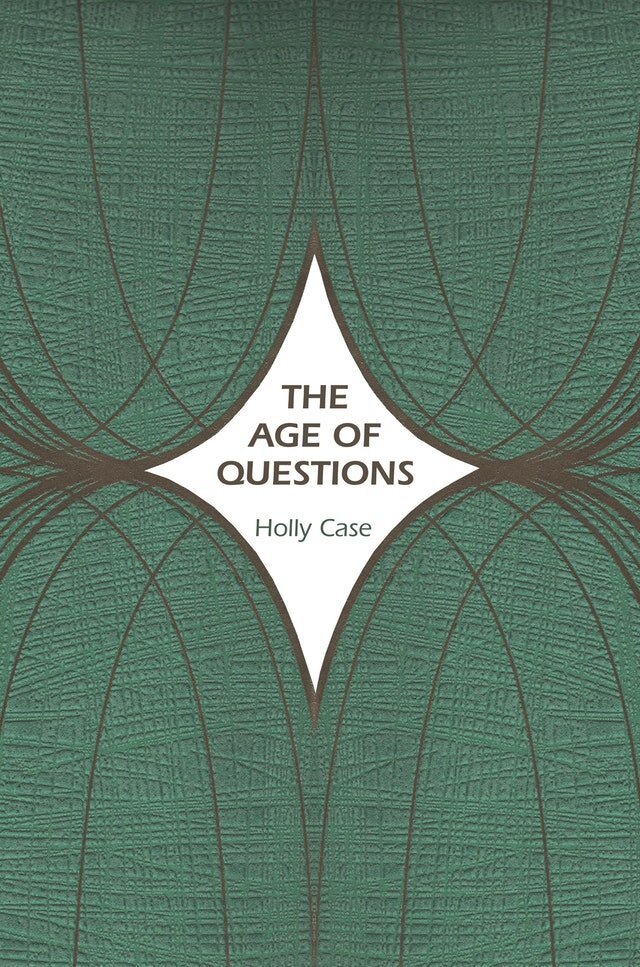
Winner 2018
The Age of Questions (PUP)
By Holly Case
In this pioneering book, Holly Case undertakes a stunningly original analysis, presenting, chapter by chapter, seven distinct arguments and frameworks for understanding the age. She considers whether it was marked by a progressive quest for emancipation (of women, slaves, Jews, laborers, and others); a steady, inexorable march toward genocide and the “Final Solution”; or a movement toward federation and the dissolution of boundaries. Or was it simply a farce, a false frenzy dreamed up by publicists eager to sell subscriptions? As the arguments clash, patterns emerge and sharpen until the age reveals its full and peculiar nature.
Turning convention on its head with meticulous and astonishingly broad scholarship, The Age of Questions illuminates how patterns of thinking move history.
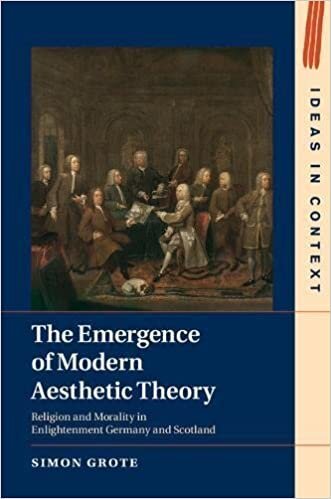
Winner 2017
The Emergence of Modern Aesthetic Theory: Religion and Morality in Enlightenment Germany and Scotland (Ideas in Context)
By Simon Grote
The history of aesthetic theory - the philosophical analysis of art and beauty - matters to nearly every discipline in the humanities and social sciences. Broad in its geographic scope yet grounded in original archival research, this book offers a strikingly new portrait of aesthetic theory's inception in the early eighteenth century.
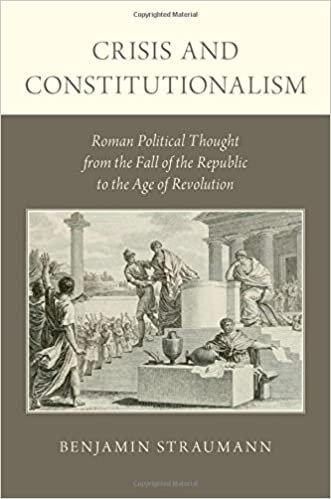
Winner 2016
Crisis and Constitutionalism: Roman Political Thought from the Fall of the Republic to the Age of Revolution (OUP)
Benjamin Straumann
This unique study makes both a substantial contribution to our understanding of Roman political thought and a major contribution to the reception of Roman ideas about politics. The book reorients the discussion of the debt of early modern political thought from the familiar claims about republicanism and republican virtue to the rediscovery of a tradition of Roman constitutionalism. In the first part, we learn how a Roman concept of constitution emerged out of the crisis of the Republic. The emergency powers of the late Republic provoked Cicero and other contemporaries to turn an inchoate constitutionalism into explicit constitutional argument and constitutional theory. The crisis of the Republic thus brought about a powerful constitutionalism and convinced Cicero to articulate the norms and rights that would provide its substance; this typically Roman constitutional theory is described in the second part. Part three discusses the reception of Roman constitutional thought up to the late eighteenth century and the American Founding, which gave rise to a new constitutional republicanism. Special attention is paid to Jean Bodin, who emerges as a key thinker in a tradition leading up to Montesquieu and, eventually, the Federalist and John Adams. This tradition was characterized by a keen interest in the Roman Republic’s decline and fall and an insistence on the limits of virtue. The crisis of the Republic was interpreted as a constitutional crisis, and the only remedy to escape the Republic’s fate—military despotism—was thought to lie, not in republican virtue, but in Roman constitutionalism.
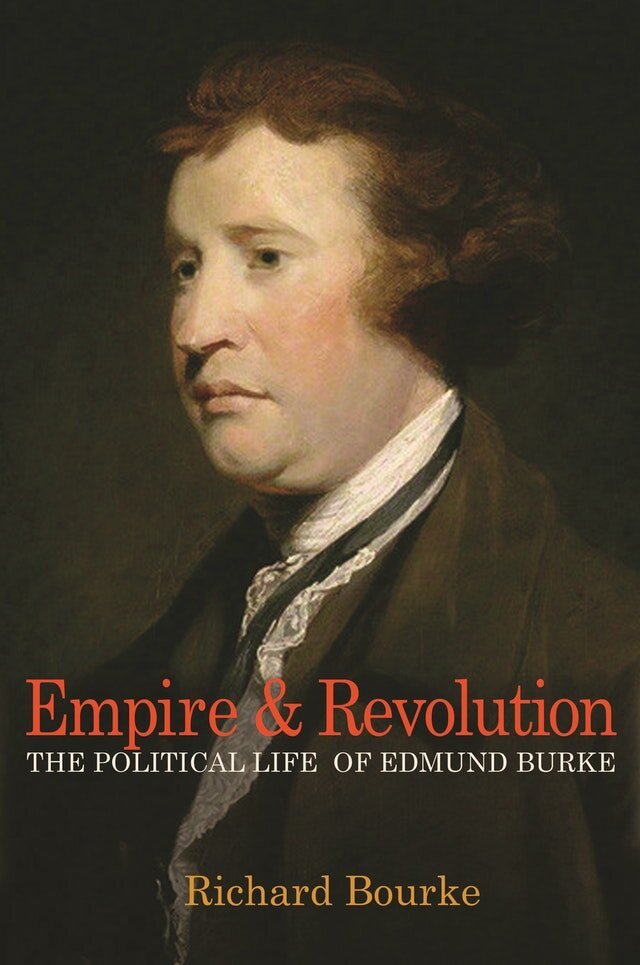
Joint Winner 2015
Empire & Revolution. The Political Life of Edmund Burke (PUP)
By Richard Bourke
Edmund Burke (1730–97) lived during one of the most extraordinary periods of world history. He grappled with the significance of the British Empire in India, fought for reconciliation with the American colonies, and was a vocal critic of national policy during three European wars. He also advocated reform in Britain and became a central protagonist in the great debate on the French Revolution. Drawing on the complete range of printed and manuscript sources, Empire and Revolution offers a vivid reconstruction of the major concerns of this outstanding statesman, orator, and philosopher. In restoring Burke to his original political and intellectual context, this book overturns the conventional picture of a partisan of tradition against progress and presents a multifaceted portrait of one of the most captivating figures in eighteenth-century life and thought. A boldly ambitious work of scholarship, this book challenges us to rethink the legacy of Burke and the turbulent era in which he played so pivotal a role.
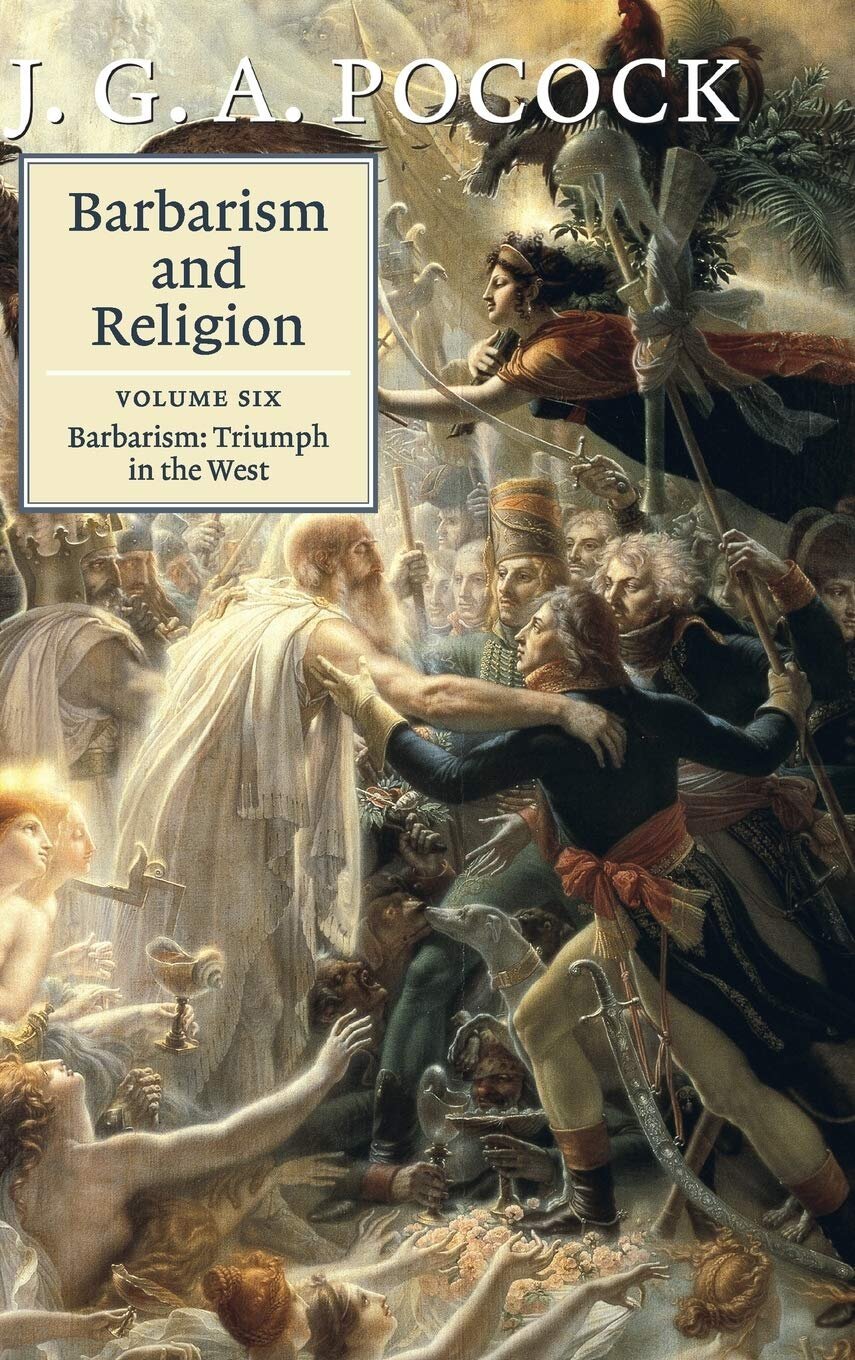
Joint Winner 2015
Barbarism and Religion. Volume Six. Barbarism: Triumph in the West (CUP)
By J. G. A. Pocock
This sixth and final volume in John Pocock's acclaimed sequence of works on Barbarism and Religion examines Volumes II and III of Edward Gibbon's Decline and Fall of the Roman Empire, carrying Gibbon's narrative to the end of empire in the west. It makes two general assertions: first, that this is in reality a mosaic of narratives, written on diverse premises and never fully synthesized with one another; and second, that these chapters assert a progress of both barbarism and religion from east to west, leaving much history behind as they do so. The magnitude of Barbarism and Religion is already apparent. Barbarism: Triumph in the West represents the culmination of a remarkable attempt to discover and present what Gibbon was saying, what he meant by it, and why he said it in the ways that he did, as well as an unparalleled contribution to the historiography of Enlightened Europe.
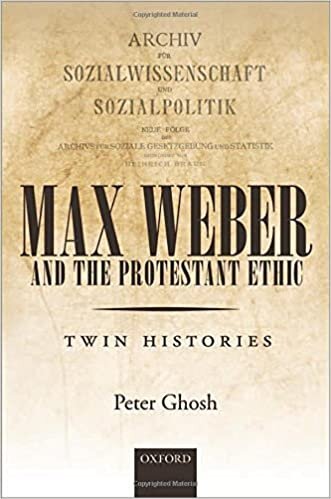
Winner 2014
Max Weber and the Protestant Ethic: Twin Histories (Oxford University Press)
By Peter Gosh
Max Weber and The Protestant Ethic: Twin Histories presents an entirely new portrait of Max Weber, one of the most prestigious social theorists in recent history, using his most famous work, The Protestant Ethic and the "Spirit" of Capitalism, as its central point of reference. It offers an intellectual biography of Weber framed along historical lines - something which has never been done before. It re-evaluates The Protestant Ethic - a text surprisingly overlooked by scholars - supplying a missing intellectual and chronological centre to Weber's life and work. Peter Ghosh suggests that The Protestant Ethic is the link which unites the earlier (pre-1900) and later (post-1910) phases of his career. He offers a series of fresh perspectives on Weber's thought in various areas - charisma, capitalism, law, politics, rationality, bourgeois life, and (not least) Weber's unusual religious thinking, which was 'remote from god' yet based on close dialogue with Christian theology. This approach produces a convincing view of Max Weber as a whole; while previously the sheer breadth of his intellectual interests has caused him to be read in a fragmentary way according to a series of specialized viewpoints, this volume seeks to put him back together again as a real individual.
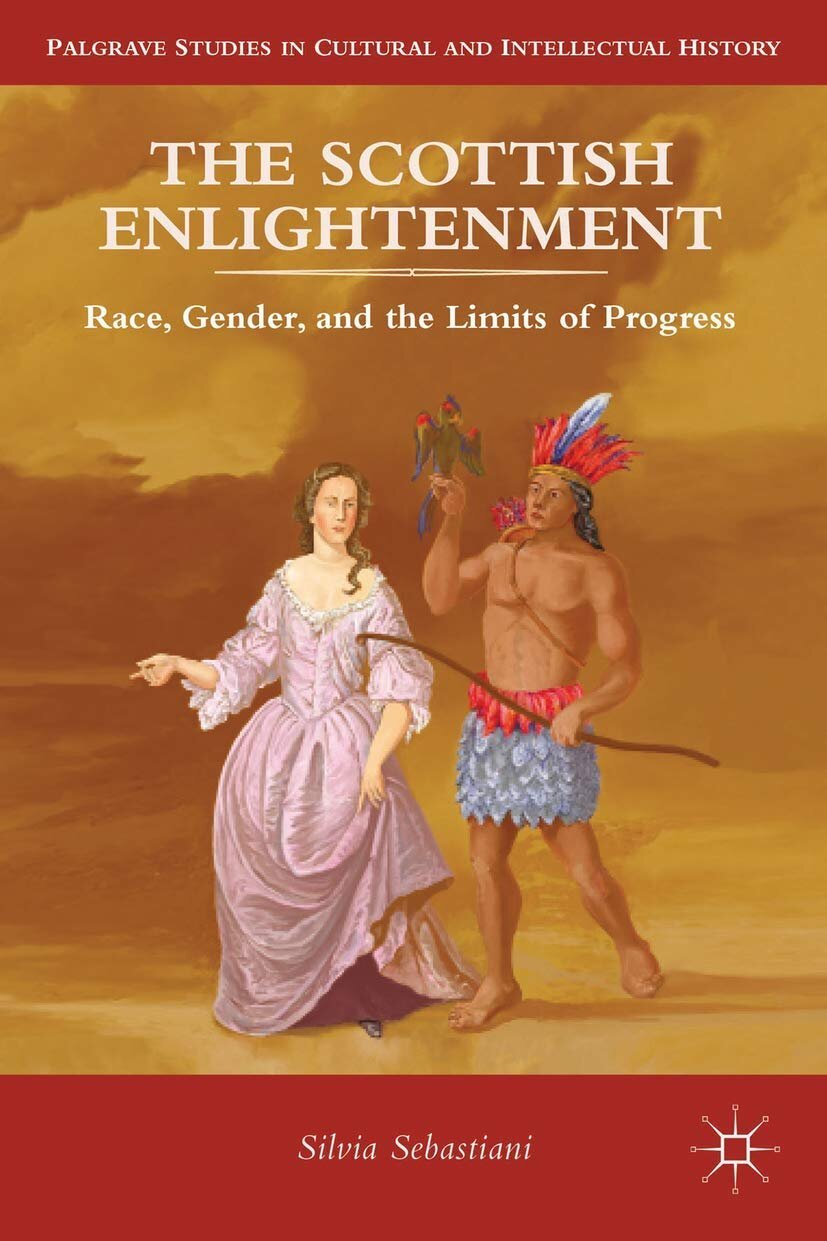
Joint Winner 2013
The Scottish Enlightenment: Race, Gender, and the Limits of Progress (Palgrave)
By Silvia Sebastani
The Scottish Enlightenment shaped a new conception of history as a gradual and universal progress from savagery to civil society. Whereas women emancipated themselves from the yoke of male-masters, men in turn acquired polite manners and became civilized. Such a conception, however, presents problematic questions: why were the Americans still savage? Why was it that the Europeans only had completed all the stages of the historic process? Could modern societies escape the destiny of earlier empires and avoid decadence? Was there a limit beyond which women's influence might result in dehumanization? The Scottish Enlightenment's legacy for modernity emerges here as a two-faced Janus, an unresolved tension between universalism and hierarchy, progress and the limits of progress.
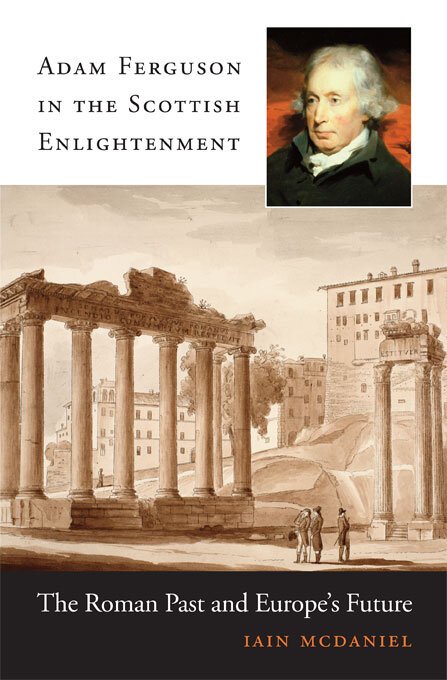
Joint Winner 2013
Adam Ferguson in the Scottish Enlightenment (HUP)
By Iain McDaniel
Although overshadowed by his contemporaries Adam Smith and David Hume, the Scottish philosopher Adam Ferguson strongly influenced eighteenth-century currents of political thought. A major reassessment of this neglected figure, Adam Ferguson in the Scottish Enlightenment: The Roman Past and Europe’s Future sheds new light on Ferguson as a serious critic, rather than an advocate, of the Enlightenment belief in liberal progress. Unlike the philosophes who looked upon Europe’s growing prosperity and saw confirmation of a utopian future, Ferguson saw something else: a reminder of Rome’s lesson that egalitarian democracy could become a self-undermining path to dictatorship.
As Iain McDaniel makes clear, Ferguson’s skepticism about the ability of constitutional states to weather pervasive conditions of warfare and emergency has particular relevance for twenty-first-century geopolitics. This revelatory study will resonate with debates over the troubling tendency of powerful democracies to curtail civil liberties and pursue imperial ambitions.

